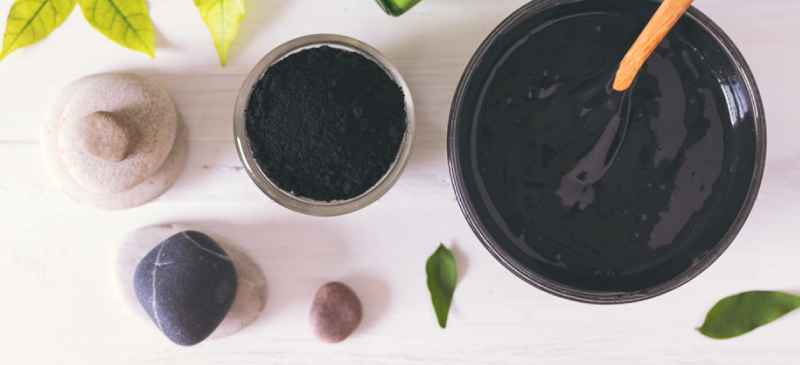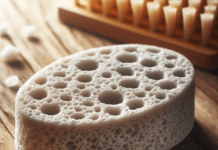DIY Charcoal Mask
Activated charcoal is an age-old natural remedy that has been used for thousands of years in Eastern medicine and clinically for about 150 years in Western Medicine.
There are many uses and benefits of activated charcoal, including removing toxins, digestive health, anti-aging, teeth-whitening, and many more.
What are activated charcoal benefits for your skin?
Because of its porous surface, activated charcoal draws out impurities through adsorption, not to be confused with absorption.
Because of this process, charcoal pulls out dirt and oil from your skin, and this one of many activated charcoal benefits.
Which charcoal mask is best?
While searching out the best mask for your particular skin troubles — whether it is excess oil, blackheads, or acne, many brands offer face masks at varying price ranges.
The problem with these is that many are loaded with numerous toxic chemicals.
You can find more information on brands of covers and their ingredients on the EWG’s Skin Deep Cosmetics Database.
But, rather than expose yourself to unnecessary chemicals that can be harsh on the skin, try making my DIY charcoal mask or even a peel-off DIY blackhead mask (details below).
DIY Charcoal Mask
Total Time: 5 minutes
Ingredients
- Six capsules activated charcoal
- Three tablespoons bentonite clay
- Three tablespoons apple cider vinegar
- 15 drops pure rosehip oil
- 3 drops tea tree essential oil
Directions
- Using a non-metallic utensil, such as a rubber spatula or wooden spoon, mix the contents of the activated charcoal powder and bentonite clay in a glass bowl (metals will de-activate the natural charge of the earth).
- Add apple cider vinegar (ACV) one tablespoon at a time, stirring well, until an easily spreadable paste is formed. You may notice some fizzing as you add the ACV; this is a normal reaction.
- Add 15 drops of rosehip oil and three drops of tea tree essential oil. Stir well to combine.
- Store in a glass, airtight container in the refrigerator.
How to Use
With clean fingers or a mask applicator, spread the DIY charcoal mask mixture over the face and neck, avoiding your eyes.
Allow drying, approximately 20 minutes. Remove with warm water and follow with a good moisturizer and humectant.
For the best results, you may use this mask twice weekly.
How do you get a charcoal mask off?
Remove the charcoal mask with warm water and a washcloth.
Whether rinse-off or peel-off, activated charcoal has strong oil-absorbing and acne-fighting properties,
You will want to follow with a right toner (or just ACV), moisturizer, and a humectant to seal in that moisture.
Peel-Off DIY Blackhead Mask with Charcoal
Do charcoal masks help with blackheads?
Using activated charcoal makes an excellent blackhead face mask.
Blackheads result from hardened sebum (oil that is naturally produced by the body) in pores.
It is not recommended for anyone to pick at, or squeeze out blackheads, as this can cause further damage to the skin and infection.
Instead, for an instant fix, you can make a peel-off DIY blackhead face mask with charcoal to adhere to and lift out the hardened plugs of oil.
How do you make a peel-off charcoal mask?
To make this simple peel-off DIY blackhead mask, combine the following ingredients with three teaspoons of boiling water in a glass bowl:
- Two activated charcoal capsules
- 1/2 teaspoon bentonite clay
- Two teaspoons powdered gelatin
- Two drops of tea tree or lavender essential oil (optional)
Stir well to combine with a rubber spatula.
Because the gelatin will continue thickening, you want to quickly apply the mask with a mask brush, avoiding the eyes and hair — such as eyebrows.
Allow to dry completely — approximately 25 minutes — then peel off, beginning at an outside edge.
DIY Charcoal Mask with Rosehip and Tea Tree Oils
Ingredients:
- Six capsules activated charcoal
- Three tablespoons bentonite clay
- Three tablespoons apple cider vinegar
- 15 drops pure rosehip oil
- 3 drops tea tree essential oil
Directions:
- Using a non-metallic utensil, such as a rubber spatula or wooden spoon, mix the contents of the activated charcoal powder and bentonite clay in a glass bowl (metals will de-activate the natural charge of the earth).
- Add apple cider vinegar (ACV) one tablespoon at a time, stirring well, until an easily spreadable paste is formed. You may notice some fizzing as you add the ACV; this is a normal reaction.
- Add 15 drops of rosehip and tea tree oils. Stir well to combine.
- Store in a glass, airtight container in the refrigerator.








